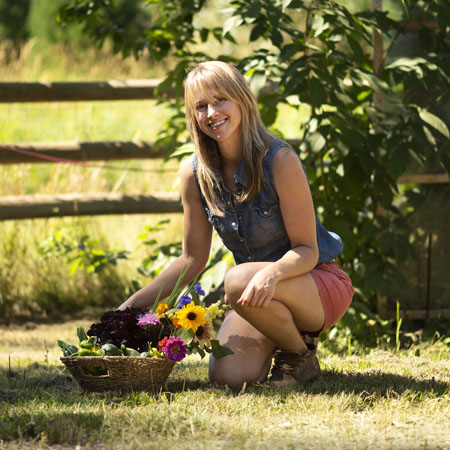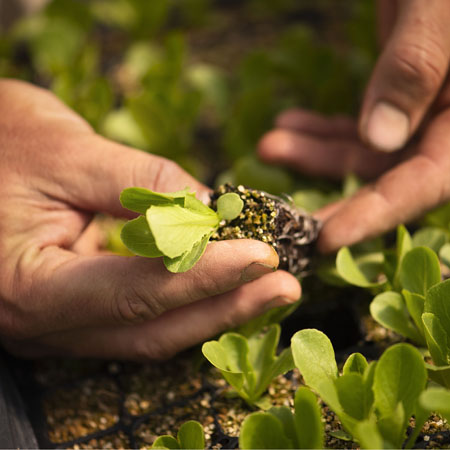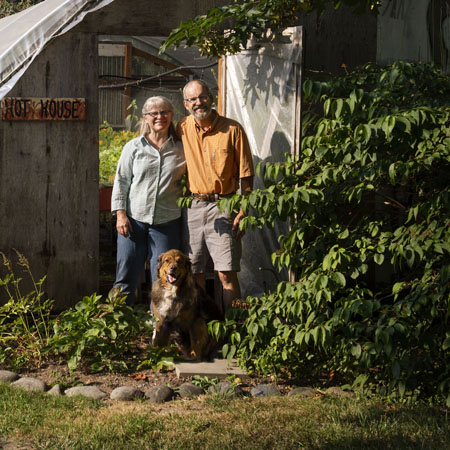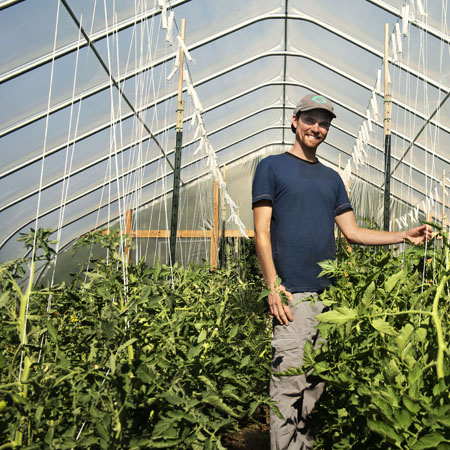
All photos credit Diane Padys Photography
Feeding the Community for 16 Years
By Alex Smith
January 2020
If you’ve been paying attention for the past 20 years or so, you may have noticed a trend in how people view food. Professional chefs and food critics are increasingly becoming mainstream celebrities, recipe sites and food blogs abound, and you may even have friends who have gone away to work on a farm, or even start their own.
With the average age of farmers quickly approaching 60, this is good news. We need farmers and we need new, young farmers for the next generation. The trouble is, farming is a challenging endeavor to get into, even for the most experienced. Now imagine starting a farm at 30 with limited experience growing food. Or running a business.
This is where the Food to Bank On program comes in. Entering its 16th year, this program offers business training, market support, and mentorship to help new farmers create a viable business. Of the farmers who have entered the 3-year program, over 80% are still farming. That’s an astounding rate when you consider that a business of any type has a less than 50% chance of surviving past 3 years.
We obviously couldn’t keep this program running without plenty of support, and we’re lucky to have that. Each year we receive funds from various corporate and local sponsors: Aslan Brewing Co, Tony’s Coffee, Frontier Co-op, GloryBee, Scratch & Peck Feeds, Heritage Bank, Skagit Valley Co-op, Woodstock Foods, Grace Harbor Farms, The Community Food Co-op, and Haggen.


The money from these sponsorships goes right back into the community as well. Farmers can donate to food banks and be reimbursed for their donations using these sponsorship dollars. The farmers have a market for some of their products, and food bank guests have access to fresh, local produce from arugula to zucchini, plus eggs and meat. Through this fund, over $100,000 in nutritious, local food has gone to people who otherwise would have no access to it.
We also can’t thank our mentor farmers enough. These experienced farmers graciously pass along their knowledge so that it’s not lost to generations. Farmers from Cloud Mountain Farm Center, Rabbit Fields Farm, Bow Hill Blueberries, Osprey Hill Farm, Cedarville Farm, and Misty Meadows Farm all provide direct one-on-one guidance on everything from equipment maintenance to setting up a good farmers market booth.


If you visit local farmers markets, the Community Food Co-op, or Haggen, you have certainly seen the products coming from farmers who graduated the program. You may have even met them at the market or seen their photos in the produce section at the Co-op. Spring Time Farm, Rabbit Fields Farm, Misty Meadows Farm, and Twin Cedars Farm are just a few examples of success stories that are too numerous to list.
It’s not all rainbows and butterflies, though. Even with all of this support, farming is an incredibly challenging undertaking. Growing food is difficult enough, but farmers have to also be accountants, diesel mechanics, paralegals, marketers, and customer service representatives as well. We’re lucky to have the support of local professionals who generously share their time with farmers. It really does take a village.
We’re excited to kick off our 2020 season with four new farms entering the program, and we hope that you are too. The support of the community is what makes this program run and we want to express the immense support we get from sponsors, mentors, and you.
If you want to know more about the program or how to support this work, visit our website or contact Alex Smith at (360)647-7093 x111 or alex@sustainableconnections.org.
